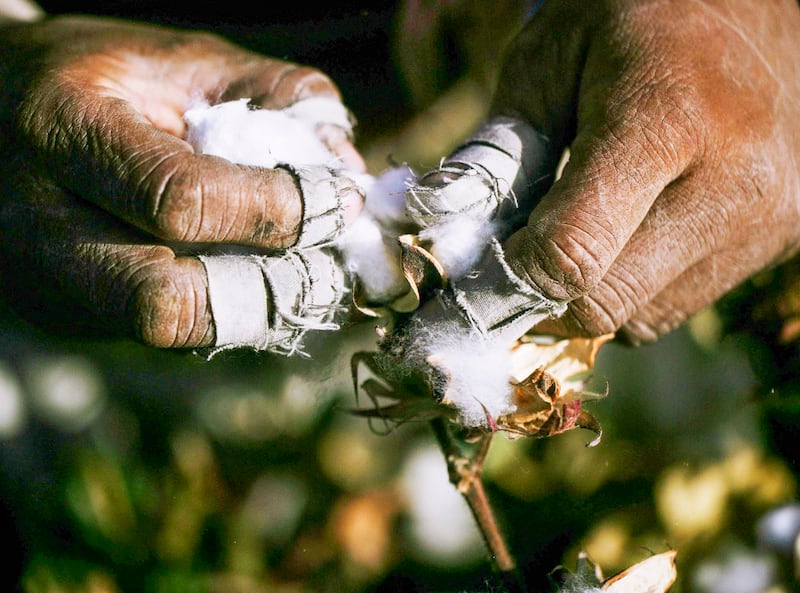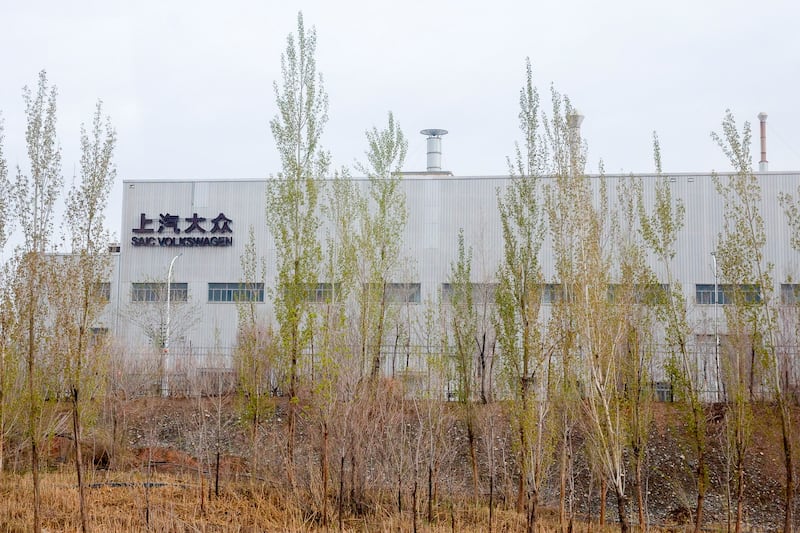A loophole that allows Chinese retail companies to sidestep a ban on importing goods made using slave labor into the United States has come into the crosshairs of U.S. officials and legislators, with a move underway to close the discrepancy by the end of the year.
The “de minimis” exception to customs inspections allows people and companies sending goods from overseas to bypass the regular scrutiny and taxing of the imports if a package’s total value is less than $800.
It was meant to provide a simplified customs process for one-off packages sent into the United States, or for Americans returning from vacations overseas with relatively low-value goods or souvenirs.
But critics say Chinese online retail companies like Shein and Temu have exploited the provision by selling large volumes of cheap clothing directly to consumers, allowing them to skirt inspections intended to prevent goods made with Uyghur forced labor to enter America.
Speaking at an event on Uyghur forced labor on Tuesday, Alejandro Mayorkas, the U.S. secretary of homeland security, said that the “de minimis” loophole was causing havoc for customs inspectors.

Hundreds of millions of packages enter the United States under the exception each year, he said, creating a logistical nightmare for law enforcement inspecting goods at airports and postal facilities.
“We receive 4 million packages a day under the ‘de minimis’ exception … and, look, we can't screen all 4 million a day, even though AI is going to enhance our capabilities,” Mayorkas said at the event, which was hosted by the Center for Strategic and International Studies.
When such packages were inspected, he said, violations of laws like the 2021 Uyghur Forced Labor Prevention Act were common.
“It is stunning from a point of view of forced labor,” Mayorkas said. “It is stunning from a point of view of narcotics, controlled substances and what [else] enters, and ghost guns, and all sorts of contraband.”
“The ‘de minimis’ exception is built on a false premise that low-value means low-risk,” he added, vowing to prioritize solving the issue.
Congressional action
Identifying and solving the issues raised by the "de minimis" loophole have proved to be two different beasts, though, with lawmakers last year having already called for changes to remove the exception.
There’s few solutions to completely close the loophole besides requiring all packages from overseas to be subjected to the more stringent levels of customs declarations for regular imports.
Related stories
[ Fast-fashion outlets may be skirting Uyghur slave labor lawsOpens in new window ]
[ US House panel urges further action on Uyghur forced laborOpens in new window ]
[ China says its camps are closed, but Uyghurs remain under threatOpens in new window ]
However, House Speaker Mike Johnson on Monday suggested one way to at least reduce the loophole would be removing the “de minimis” exception from any imported goods that would normally be subjected to U.S. tariffs, and pledged to shepherd legislation through Congress.
“We’ll reign-in the ‘de minimis’ privilege … and that will help stymie China's attempts to exploit American trade,” Johnson told an event at New York’s Hudson Institute. “Our goal is to have a significant package of China related legislation signed into law by the end of this year.”

Both Temu and Shein have denied that any of their products were produced using slave labor. China's government, meanwhile, denies Uyghurs are imprisoned and forced to produce goods, insisting they are in " vocational training" programs to alleviate poverty.
But at Tuesday’s event, Mayorkas said that preventing any goods made with Uyghur slave labor from entering the United States was a “humanitarian imperative,” even if Beijing denies such slavery exists.
He said trying to engage diplomatically with the Chinese government on the situation of the Uyghurs was an ongoing “process.”
“We have areas of agreement, we have areas of disagreement, and we continue to dialog and see what progress we can make,” he said.
Edited by Malcolm Foster.
